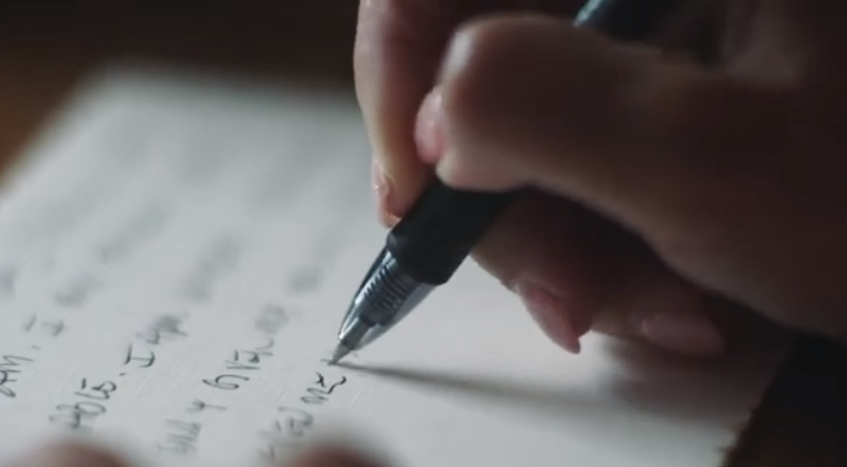Dec 19, 2023 | Mental Health Ministry, Stronger Together Support Group
Hello friends,
Over the past few weeks we’ve watched and discussed some really inspiring videos about how people have turned their personal struggles with mental illness into profound acts of courage and generosity. It’s not your typical Christmas content, I suppose, but Christmas is a celebration of hope and these stories are nothing if not hopeful.
This week we’ll watch one more from Carson Daly (if you grew up on MTV he needs no introduction), who speaks candidly about his struggles with anxiety and panic disorder. One of my hopes is that, in just a few years’ time, we hear even more of these personal testimonies…not just from those affected by depression and anxiety, but also from people affected by types of mental illness such as schizophrenia and borderline personality disorder that are still considered taboo.
Our warm-up is a Christmas-themed guessing game!
Name two Christmas carols, and see if everyone else can guess whether you love one and despise the other, love them both, or give them both a “bah humbug.”
See you soon,
Alex
Dec 13, 2023 | Mental Health Ministry, Stronger Together Support Group
Hello friends,
We have some really creative and artistic people in this discussion group. There’s also people like me, who perhaps aren’t naturally artistic but strive to be more creative and appreciative of the art we encounter. This week we’re going to explore a few different ways in which mental health and art can intersect, from giving us a language to express complex feelings to connecting us with people and ideas that can bring healing.
Our warm-up question for this week:
Check out this website of Texas Mental Health Creative Arts Contest winners. Which image stands out to you, and why?
See you soon,
Alex

Dec 6, 2023 | Mental Health Ministry, Stronger Together Support Group
Hello friends,
One of my favorite things about our group discussions is that we get to go pretty deep into mental health topics that don’t come up in conversation often enough. It’s good also to step back on occasion to “see the forest through the trees,” as the saying goes. All the topics we discuss are about people, after all. It’s not about illnesses, or treatment paradigms, or biases, or strategies; it’s about the people in our lives, and about ourselves.
We’re going to watch a beautifully composed 7-minute video to bring this point into focus on Thursday. It’s the story of Kevin Love, who you may or may not be familiar with as a longtime star player in the NBA. His story is both extraordinary because of who he is and how he has shaped his life in response to mental health challenges, while also being entirely ordinary and relatable because of the honesty with which he talks about these challenges. He sums up his approach as “putting all my cards on the table.” Deal!
Our warm-up question for this week:
What is your favorite game to play, whether a sport, a card game, or anything else?
See you soon,
Alex

Nov 2, 2023 | Mental Health Ministry, Stronger Together Support Group
Hello friends,
We’ve talked before about the virtues of journaling for promoting mental well-being, but there’s a slightly different form of writing that has been shown to be especially powerful for helping people recover from traumatic situations and generally “getting out of our own heads.” It’s called expressive writing, and it helps us make better sense of ambiguous or otherwise anxiety-causing thoughts and feelings. Once we make better sense of them, it’s easier to move forward.
It sounds simple because it is! We’ll start this week’s discussion by watching a brief video about the power of expressive writing and how to get started with the practice. From there we’ll reflect on when and how writing/journaling exercises such as this one have (or could have) made a positive impact on our well-being. We might even try a mini-exercise together during the discussion!
Our warm-up question for this week:
Flashbulb memories are vivid, long-lasting memories about a surprising or shocking event from the past. What’s a flashbulb memory from your childhood?
See you soon,
Alex
Sep 26, 2023 | Mental Health Ministry, Stronger Together Support Group
Hello friends,
Sometimes the simplest of metaphors help us see an issue from a deeper, more personal level. That’s why we’re going to watch a short video about a dog this week. [Insert joke here about how we’re not dogging it in Stronger Together, or about depression being a “total dog”, etc.]
In this case the “dog” is depression, and if you’ve never experienced what it’s like to live with clinical depression (as I have not), this is a great way to understand it through a different lens. Also if you’re like me and you happen to like dogs regardless of their coat color, you might feel ambivalent about this metaphor… at least until the end of the video.
Our warm-up question for this week:
Describe how your week has been using a metaphor. Similes are okay, too!
See you soon,
Alex

